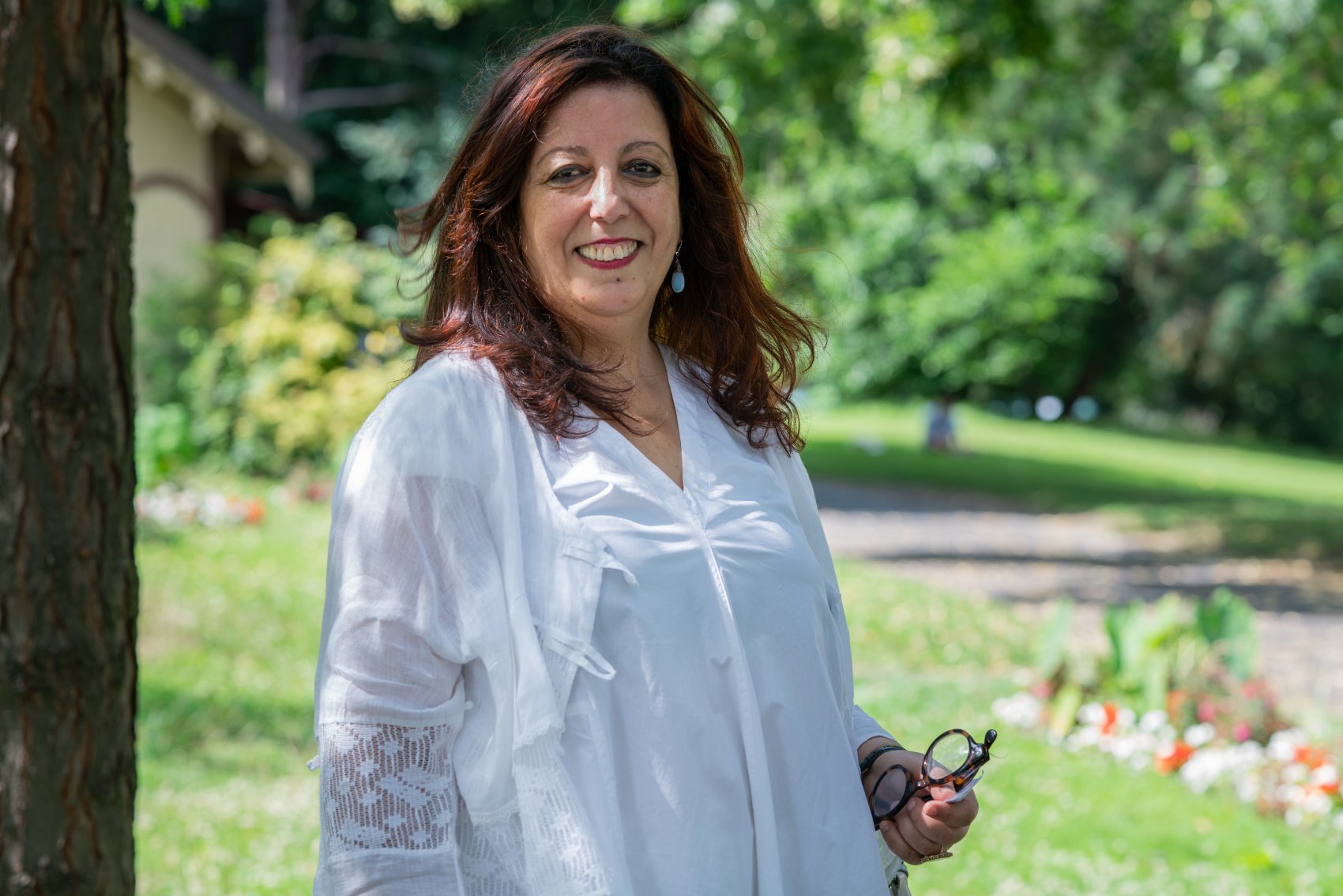“I always say I have two loves in my life : books and the city of Tangiers. Reading is like a drug for me, I can’t live without it. I grew up with books in the 70s in Tetouan, Morocco, in this post-’68 atmosphere. We were a whole generation like that, politically active and a little…a lot communist! You can imagine a little!
I started reading very young Simone de Beauvoir, Sartre, Mahfoud and Nawal El Saadawi who was a pioneer in talking about questions of virginity, emancipation of women, etc. It opened me to the world, to feminism. So then I became rebellious (laughs)! At 12 ou 13 I already knew I wouldn’t be in a classical marriage-children framework. That being said, I really didn’t come from a bourgeois family. I grew up in a middle class family with parents who pushed us to study and who gave us enough freedom.
And Tangiers was a very important element in my life thanks in part to the writer Mohamed Choukri. You know, Choukri was someone who had lived in the streets, really. He met Paul Bowles, Jean Genet and the Beat generation. But they were people with resources in search of a bit of excitment. He had learned to read at 21, and when he saw what they were writing he said : “I can also write books on this subject!” It was his daily life. That’s how he wrote “Le pain nu” and become a famous writer.
Choukri was someone you absolutely had to meet in Tangiers, and meeting him was a determining moment for me. At his side I met so many people who were out of the ordinary, almost on the margins of society; improvised evenings with broke writers and poets, journalists, artists… It opened my mind so much. At first it was hard for me to understand what he was trying to teach me about the importance of travelling. I understood a bit later. Travelling isn’t just about buying a ticket and leaving, there are other ways to travel : in one’s own city, walking through a market, during a party or through the soul of a being…”
(Parc des Cropettes | translated from French)
After we met by chance in the Parc des Cropettes, I learned that Badia was the founder and director of the Association pour la Promotion des Droits Humains (apdh.ch) who is engaged in Geneva in favor of migrants from Middle East and Northern Africa. She was also the winner in 2006 of the “Prix femme exilée, femme engagée” of the city of Geneva.
Share this story :
“I always say I have two loves in my life : books and the city of Tangiers. Reading is like a drug for me, I can’t live without it. I grew up with books in the 70s in Tetouan, Morocco, in this post-’68 atmosphere. We were a whole generation like that, politically active and a little…a lot communist! You can imagine a little!
I started reading very young Simone de Beauvoir, Sartre, Mahfoud and Nawal El Saadawi who was a pioneer in talking about questions of virginity, emancipation of women, etc. It opened me to the world, to feminism. So then I became rebellious (laughs)! At 12 ou 13 I already knew I wouldn’t be in a classical marriage-children framework. That being said, I really didn’t come from a bourgeois family. I grew up in a middle class family with parents who pushed us to study and who gave us enough freedom.
And Tangiers was a very important element in my life thanks in part to the writer Mohamed Choukri. You know, Choukri was someone who had lived in the streets, really. He met Paul Bowles, Jean Genet and the Beat generation. But they were people with resources in search of a bit of excitment. He had learned to read at 21, and when he saw what they were writing he said : “I can also write books on this subject!” It was his daily life. That’s how he wrote “Le pain nu” and become a famous writer.
Choukri was someone you absolutely had to meet in Tangiers, and meeting him was a determining moment for me. At his side I met so many people who were out of the ordinary, almost on the margins of society; improvised evenings with broke writers and poets, journalists, artists… It opened my mind so much. At first it was hard for me to understand what he was trying to teach me about the importance of travelling. I understood a bit later. Travelling isn’t just about buying a ticket and leaving, there are other ways to travel : in one’s own city, walking through a market, during a party or through the soul of a being…”
(Parc des Cropettes | translated from French)
After we met by chance in the Parc des Cropettes, I learned that Badia was the founder and director of the Association pour la Promotion des Droits Humains (apdh.ch) who is engaged in Geneva in favor of migrants from Middle East and Northern Africa. She was also the winner in 2006 of the “Prix femme exilée, femme engagée” of the city of Geneva.

